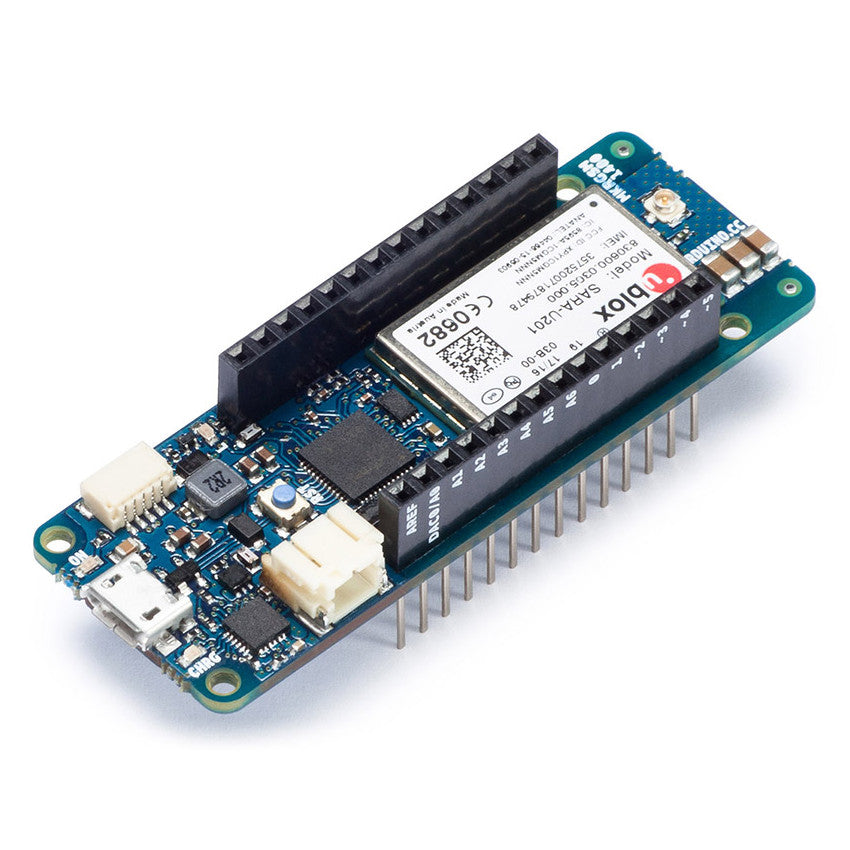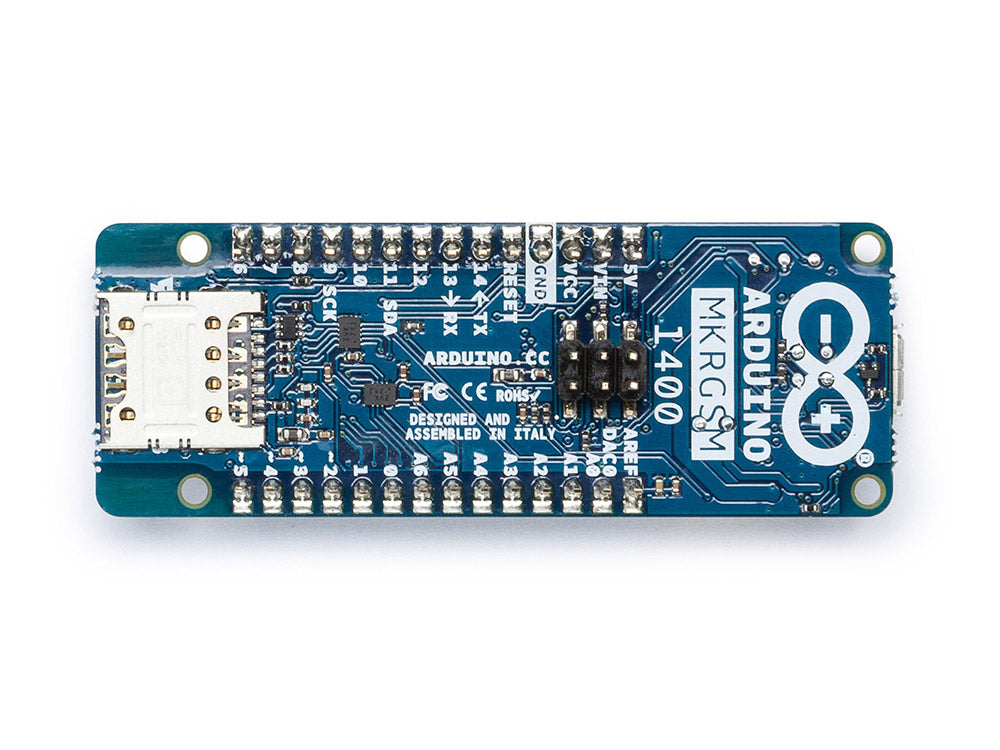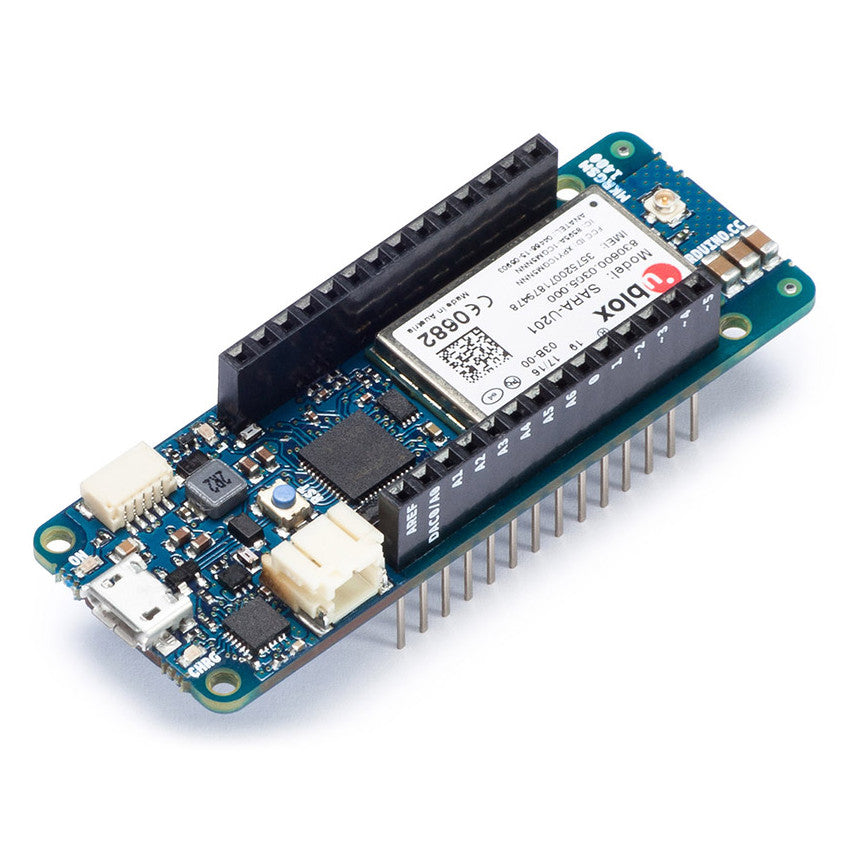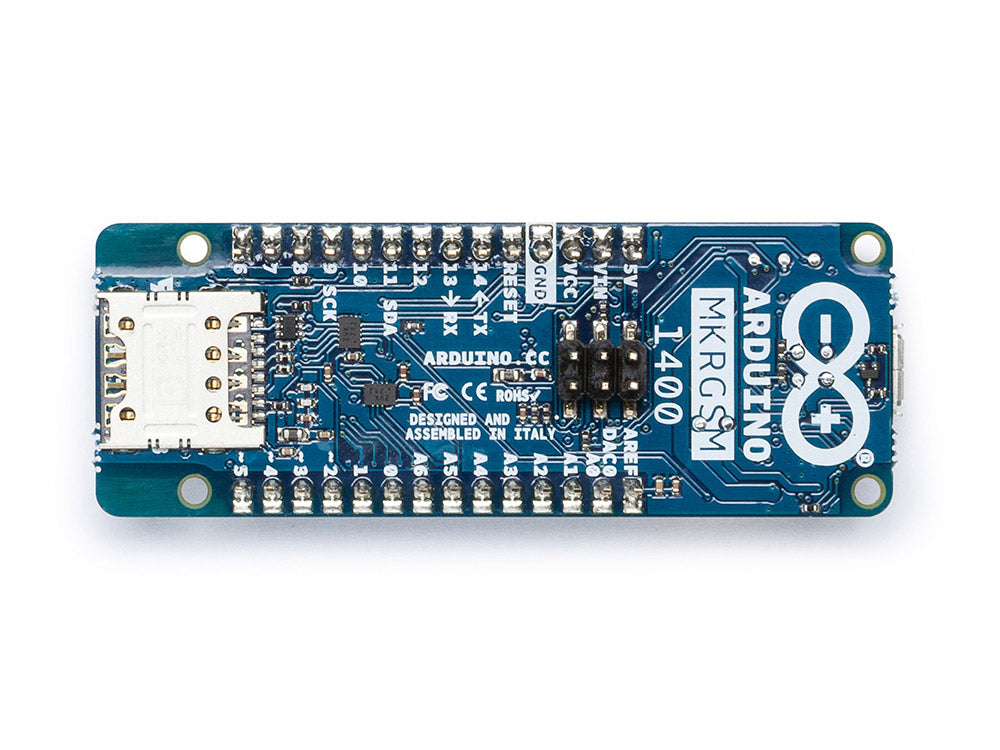Arduino
Arduino MKR GSM 1400 w/o Antenna
Arduino MKR GSM 1400 w/o Antenna
Couldn't load pickup availability
Arduino MKR GSM 1400 is a powerful board that combines the functionality of the Zero and global GSM connectivity. It is the ideal solution for makers wanting to design IoT projects with minimal previous experience in networking.
Arduino MKR GSM 1400 has been designed to offer a practical and cost effective solution for makers seeking to add global GSM connectivity to their projects with minimal previous experience in networking. It is based on the Atmel SAMD21 and a SARAU201 GSM module.
The design includes the ability to power the board using a LiPo battery or external power source from 5V up to 12V. Switching from one source to the other is done automatically. A good 32 bit computational power similar to the Zero board, the usual rich set of I/O interfaces, gobal GSM communication and the ease of use of the Arduino Software (IDE) for code development and programming. All these features make this board the preferred choice for the emerging IoT battery-powered projects in a compact form factor. The USB port can be used to supply power (5V) to the board. During cellular transmissions the peak current required by the board will exceed 500mA. This is in excess of what can sourced by a standard USB port, so it is MANDATORY to have a 1500 mAh or higher LiPo battery plugged all the time, the current provided by the USB port will be supplmented by the battery. When powering the board using Vin, a 5V power supply that can supply at least 2A is required.
Warning: Unlike most Arduino & Genuino boards, the MKR GSM 1400 runs at 3.3V. The maximum voltage that the I/O pins can tolerate is 3.3V. Applying voltages higher than 3.3V to any I/O pin could damage the board. While output to 5V digital devices is possible, bidirectional communication with 5V devices needs proper level shifting.
Specifications
| Microcontroller | SAMD21 Cortex-M0+ 32bit low power ARM MCU |
| Board Power Supply (USB/VIN) | 5V / 5-12V |
| Supported Battery | 3.7V LiPo |
| Circuit Operating Voltage | 3.3V |
| Digital I/O Pins | 8 |
| PWM Pins | 12 (0, 1, 2, 3, 4, 5, 6, 7, 8, 10, A3 - or 18 -, A4 -or 19) |
| UART | 1 |
| SPI | 1 |
| I2C | 1 |
| Analog Input Pins | 7 (ADC 8/10/12 bit) |
| Analog Output Pins | 1 (DAC 10 bit) |
| External Interrupts | 8 (0, 1, 4, 5, 6, 7, 8, A1 -or 16-, A2 - or 17) |
| DC Current per I/O Pin | 7 mA |
| Flash Memory | 256 KB |
| SRAM | 32 KB |
| EEPROM | no |
| Clock Speed | 32.768 kHz (RTC), 48 MHz |
| LED_BUILTIN | 6 |
| Full-Speed USB Device and embedded Host | |
| Antenna Power | 2 dB |
| Carrier Frequency | 433/868/915 MHz |
| Working Region | Global |
| Length | 67.64 mm |
| Width | 25 mm |
| Weight | 32 gr. |
Downloads




